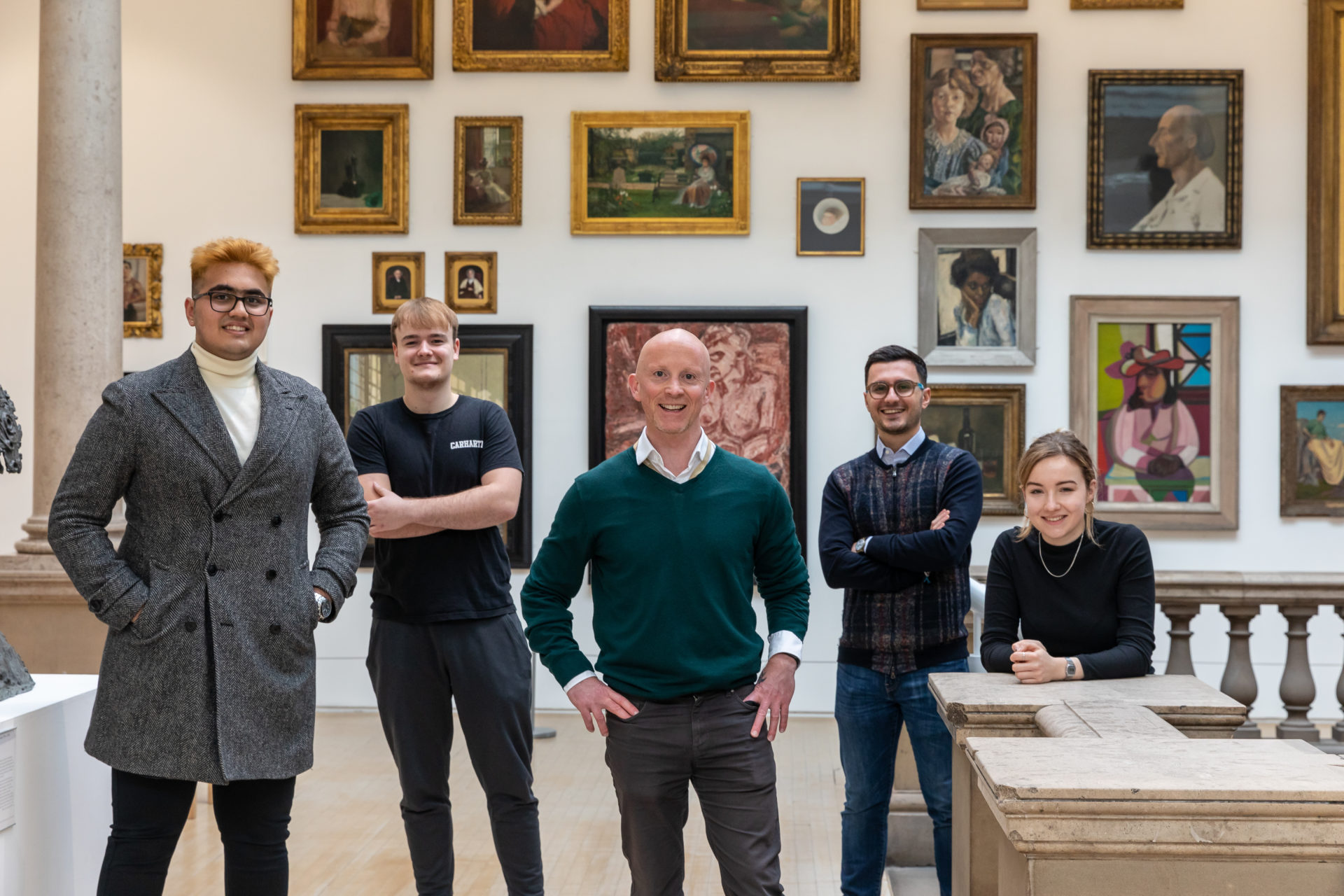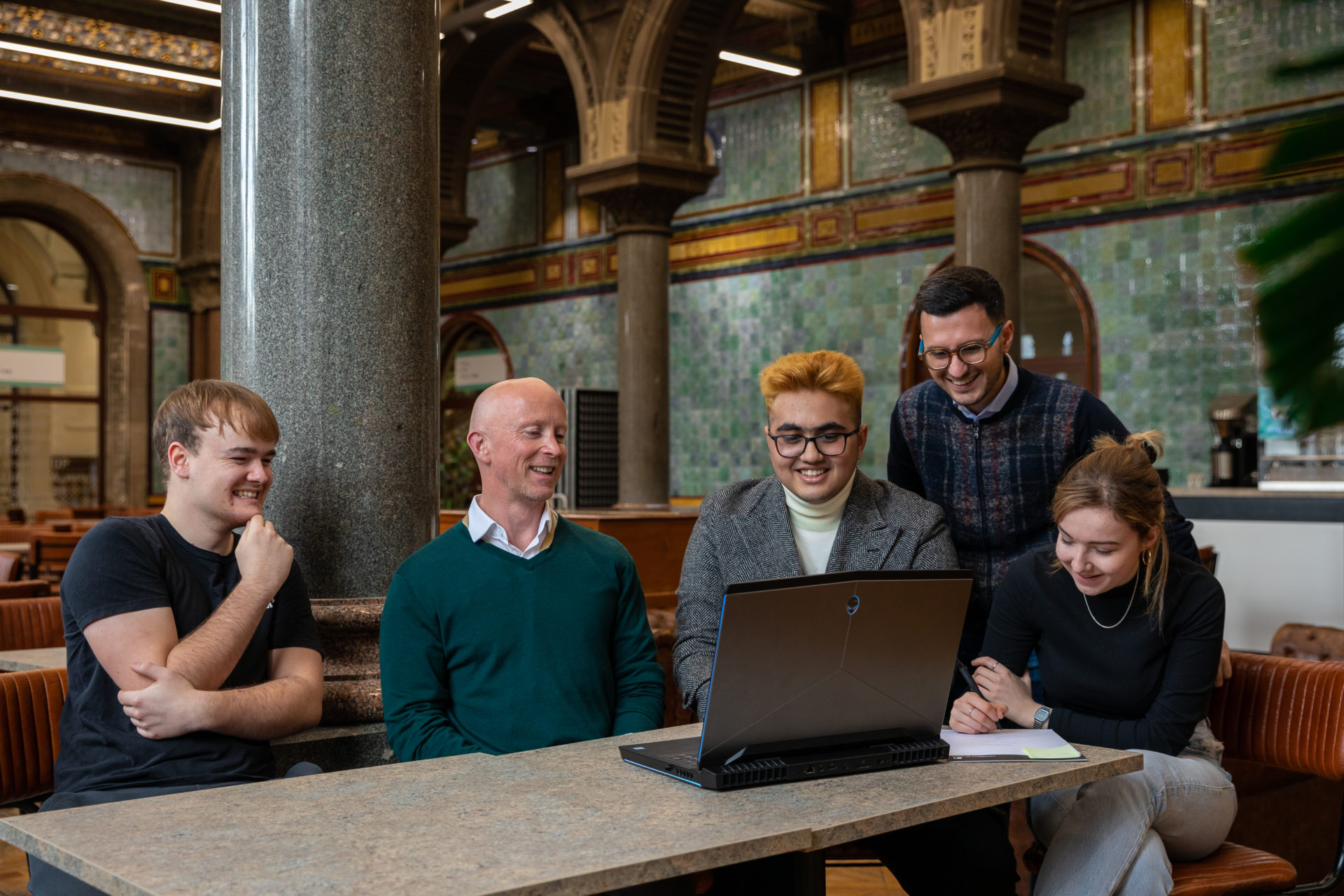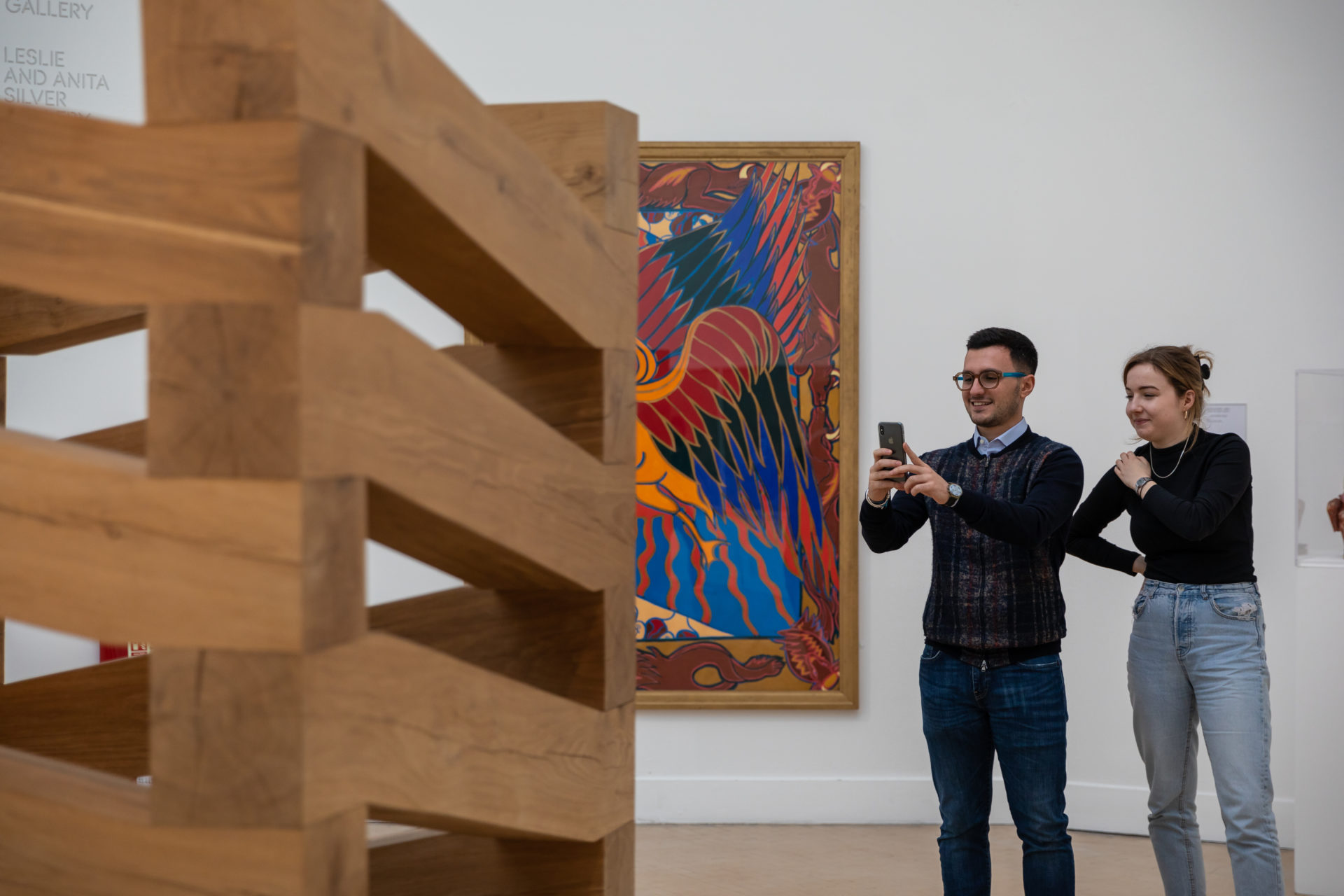Enterprise consultancy students work with Leeds Museums and Galleries

Leeds Museums and Galleries (LMG) set a mixed group of University of Leeds students taking the Business School’s CEES Enterprise Consultancy class a focussed project brief, driven by the organisation’s clear goals and a desire to provide wider opportunities for learning and development.
An opportunity to generate income through new thinking
‘LMG delivers museums and galleries services to people across nine sites city-wide, with more than 1.3 million combined visitors every year,’ explains LMG’s Head of Service David Hopes. ‘I wanted to find out what opportunities might be available to us so we could generate passive income using and expanding our digital assets, including our websites, social media, and the podcasts we launched during the pandemic. ‘
Head of Innovation at Leeds City Council Rochelle Schuster recommended David got in touch with Dr Richard Tunstall at University of Leeds. ‘LMG had already collaborated with different departments in University of Leeds, but this was the first time I’d connected with students across such a range of disciplines through the Centre for Enterprise and Entrepreneurship Studies at Leeds University Business School,’ David says. ‘I knew the opportunity to get some university thinking around the project would provide a focus for our research.’
A way to support local enterprise
As well as the research advantages, David saw the opportunity to work with students as a chance to meet one of the LMG’s key values: giving back to others. ‘Cultural learning is at the heart of what we do at LMG,’ he explains. ‘Rather than instructing a paid consultant, it made sense to work with students on something that’s of interest to us and gave them a useful opportunity to learn.’
It was a sentiment shared by the students who chose to take part. ‘This was the first time I’d engaged with a non-profit organisation, so I was keen to discover how this type of enterprise worked and gain knowledge I could take with me,’ explains Rosario Garlisi, an Italian student who studied the Enterprise Consultancy module as part of an exchange semester.’ BSc Mathematics and Business Management student Vishal Pokarna adds: ‘A community impact placement mattered to me as I care about the ethical ways these types of organisations do business. It was a chance to help those looking to give back, not make money, so I wanted the challenge of a different way of creating revenue.’

A proposal with a hands-on approach to gathering data
David delivered a proposal, describing the work he hoped to achieve and the benefits it would provide. Then, it was over to the students to decide how to approach the project. ‘David asked us to find ways to increase the LMG’s revenue from online resources, looking at their data and content,’ explains Vishal. ‘I was already exploring virtual intelligence, so we suggested we introduce that and explore innovations such as using NFTs (non-fungible tokens) and augmented reality within the museum.’
‘I was involved in preliminary search and analysis, looking at the different types of museums and galleries across Yorkshire,’ says Rosario. ‘To collect the data we needed, we spoke to visitors face-to-face. It was the first time it had been possible to run in-person surveys since the pandemic, and it allowed us to better understand visitor views by gaining insight one-on-one.’
Practical outcomes put into practice
Once the main project work was complete, David came to the university to hear the students’ end-of-project presentation, where he could ask questions and provide feedback. The students then provided LMG with a report of their findings.
‘I’ve circulated the report amongst my colleagues, as well as more widely within the sector,’ David explains. ‘We’re really taking on board two recommendations in particular around NFTs and augmented reality. At Kirkstall Abbey, we’ve been working closely with Dr Tom Jackson at University of Leeds, a specialist in digital immersive technology who the students interviewed with and mentioned in their report. The abbey’s grounds have become a testing ground for using this technology at a heritage site, and we’re looking to involve Tom and some more students at the university in development and research bids.’
Connecting as a team with university support
‘I was so lucky to have a great team: from the moment we got to know each other, we knew the project would be a successful one,’ praises Vishal. David agrees: ‘We got more than we bargained for from the students, and we were really impressed with them from day one. Their backgrounds were so varied, but they came together really cohesively as a team - each bringing something different to the table. They were all lovely, well-mannered, and full of ideas and imagination, making the project a really enjoyable experience.’
The students involved have high praise for the support of both the LMG and the module staff at the university. ‘Working directly with David and the LMG team was incredibly beneficial,’ Rosario says. ‘They were open with sharing knowledge that we can carry with us throughout future studies in and out of academia.’ ‘Dr Richard Tunstall was also an incredible support,’ Vishal adds. ‘He went beyond the books to share knowledge we can apply to real-life situations to make a tangible impact to the client, while supporting our own personal development and entrepreneurial thinking.’

Gaining skills to direct career paths
‘The CEES Enterprise Consultancy module gave me chance to talk to CEOs to understand how a business is run, as well as grow my networks,’ says Vishal. ‘In fact, this one module has helped direct my entire career. I now want to get into the consulting industry, and the course has given me the foundations I need to work in this area.’
‘I was at the Leeds University Business School for an entire semester, but the CEES Enterprise Consultancy module was the most valuable part of my studies,’ adds Rosario. ‘I’d really recommend it. Naturally, it’s challenging to come from another country - but the way the module was run and the support provided by everyone involved gave me amazing opportunities improve my skills and ways of working.’
‘I’d definitely be part of the CEES Enterprise Consultancy module again: I hugely enjoyed it, and know other colleagues did too,’ David concludes. ‘I hope we’ve been able to give back to the students beyond providing insight and practical support. It was wonderful to have them with us behind the scenes in space where their enterprise project work can have a really positive impact on heritage and communities.’
